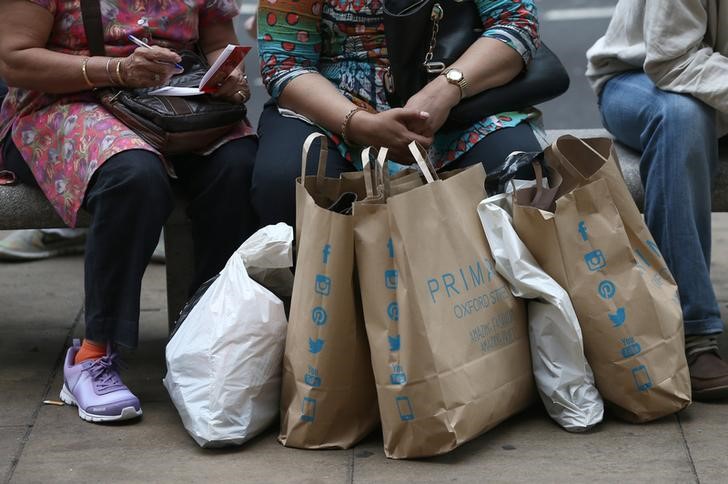LONDON (Reuters) - British consumers ramped up their spending last month but some of the increase was due to higher motor fuel prices and concerns about higher inflation are growing, surveys showed on Tuesday.
The British Retail Consortium, representing the retail industry, said spending in shops jumped 2.4 percent compared with a year ago, the strongest annual growth since January and up from growth of 1.3 percent in September.
A separate survey from Barclaycard, the credit card division of Barclays (L:BARC), showed spending on its cards increased 5.5 percent year-on-year - marking the biggest jump since the survey started in 2011.
While adding to evidence that British consumers have so far not been put off from shopping by June's vote to leave the European Union, the sharp increase in spending also served as a warning of higher inflation to come.
"Rising prices were .. a contributing factor – notably on petrol forecourts and for consumers travelling abroad," said Paul Lockstone, Barclaycard's managing director.
Retail spending was further boosted by sales of jewellery and watches, driven by tourists taking advantage of the weak pound, the BRC survey showed.
Rising fuel prices pushed spending on petrol up 6.6 percent, the biggest increase in more than two years, while Britons were also forced to pay more for their hotel stays abroad because of the pound's plunge since the Brexit vote, Barclaycard said.
Its gauge of consumer sentiment, compiled by pollster YouGov, showed 81 percent of Britons were worried by the prospect of rising prices.
A Reuters poll of economists last month suggested inflation will peak around 2.5 percent next year, but some forecasters such as the National Institute of Economic and Social Research reckon it could hit around 4 percent.
Just a third of consumers said they were confident in the economy, down from nearly half in September, Barclaycard said.
"As we approach Christmas, an expensive time in many households, many consumers are telling us they plan to rein in their spending to ensure they are able to make ends meet," Lockstone said.
Last week the Bank of England said it expected household consumption to slow markedly next year, forecasting a rise of 1.25 percent compared with 2.75 percent this year.
